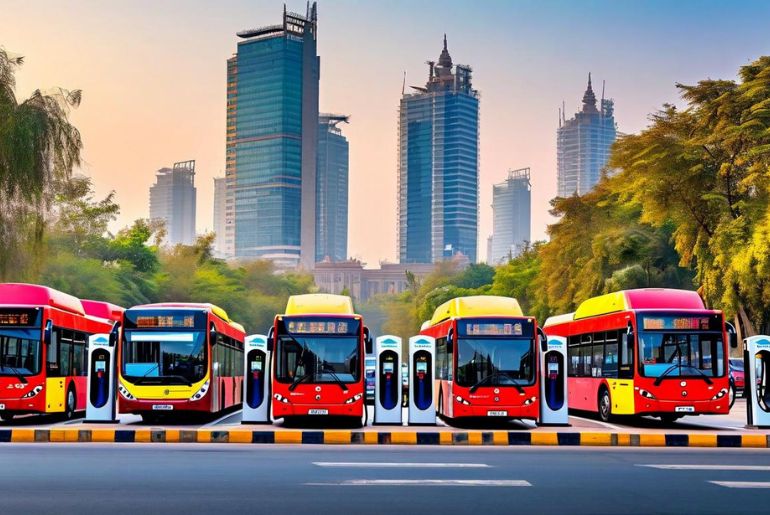Delhi is accelerating its transition toward becoming India’s electric vehicle (EV) capital with plans to deploy between 7,000 and 8,000 electric buses by February 2026, according to the city’s transport ministry.
Currently, Delhi operates around 3,400 electric buses, a remarkable increase from just 400 when Transport Minister Pankaj Singh took office. The fleet is projected to grow to 6,000 by the end of 2025, firmly placing the city on track to meet its public transport targets. The expansion will also support last-mile connectivity through the scaling up of Delhi’s “Devi” bus service.
Transport officials noted that route rationalisation studies show the city requires between 7,000 and 8,000 buses in total. The accelerated rollout of e-buses is expected to meet this demand within the next year.
In parallel, the Delhi government is preparing to launch its EV Policy 2.0 in February 2025. The new policy will prioritise charging infrastructure, with provisions for installations in residential complexes, under flyovers, and on underutilised land in outer Delhi. To ensure broad coverage, partnerships with Resident Welfare Associations (RWAs) and the private sector will be actively encouraged. Measures for phasing out older vehicles are also expected to be included.
Delhi is further collaborating with Oslo under the Delhi-Oslo Smart Transport Initiative, which will facilitate knowledge sharing and access to best practices in charging infrastructure. Drawing from Norway’s global leadership in EV adoption, the initiative is expected to strengthen Delhi’s electrification efforts.
These developments underline Delhi’s ambition to position itself at the forefront of India’s clean mobility transition, showcasing a large-scale shift towards sustainable and efficient urban transport.

